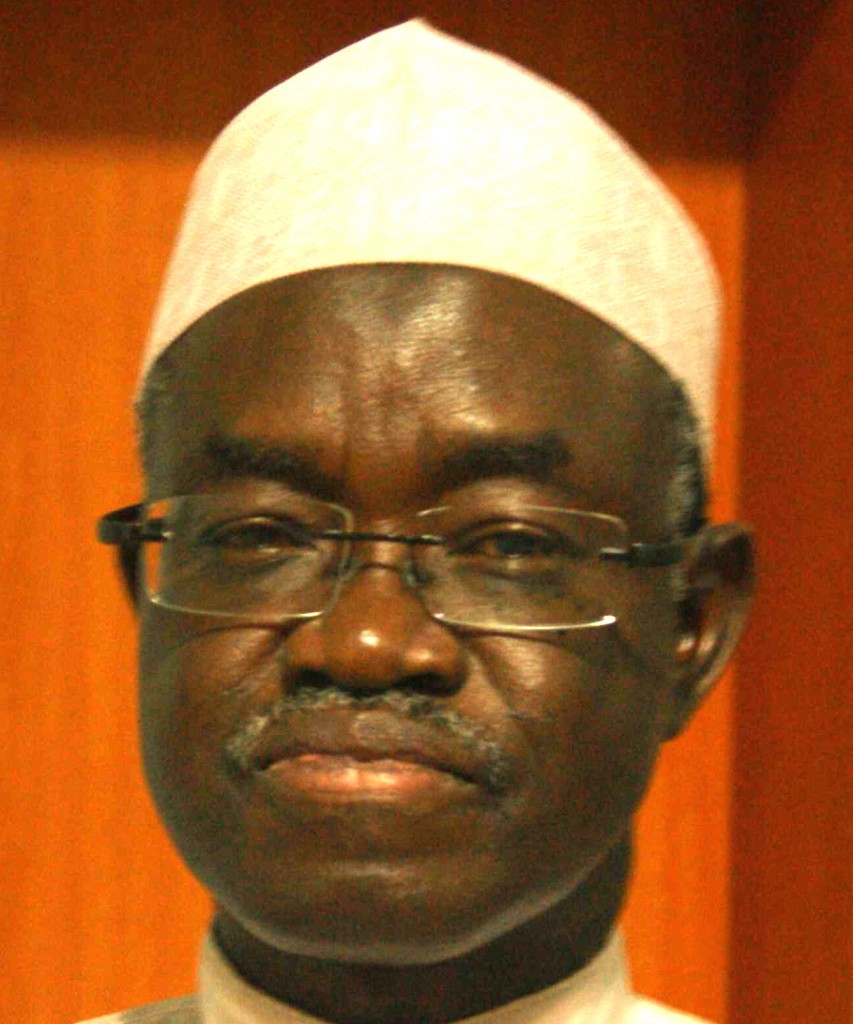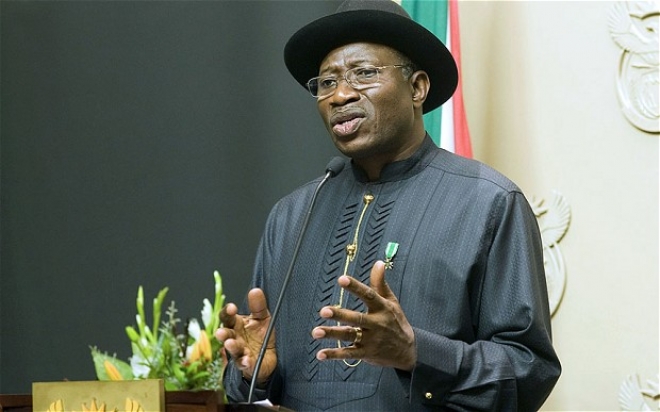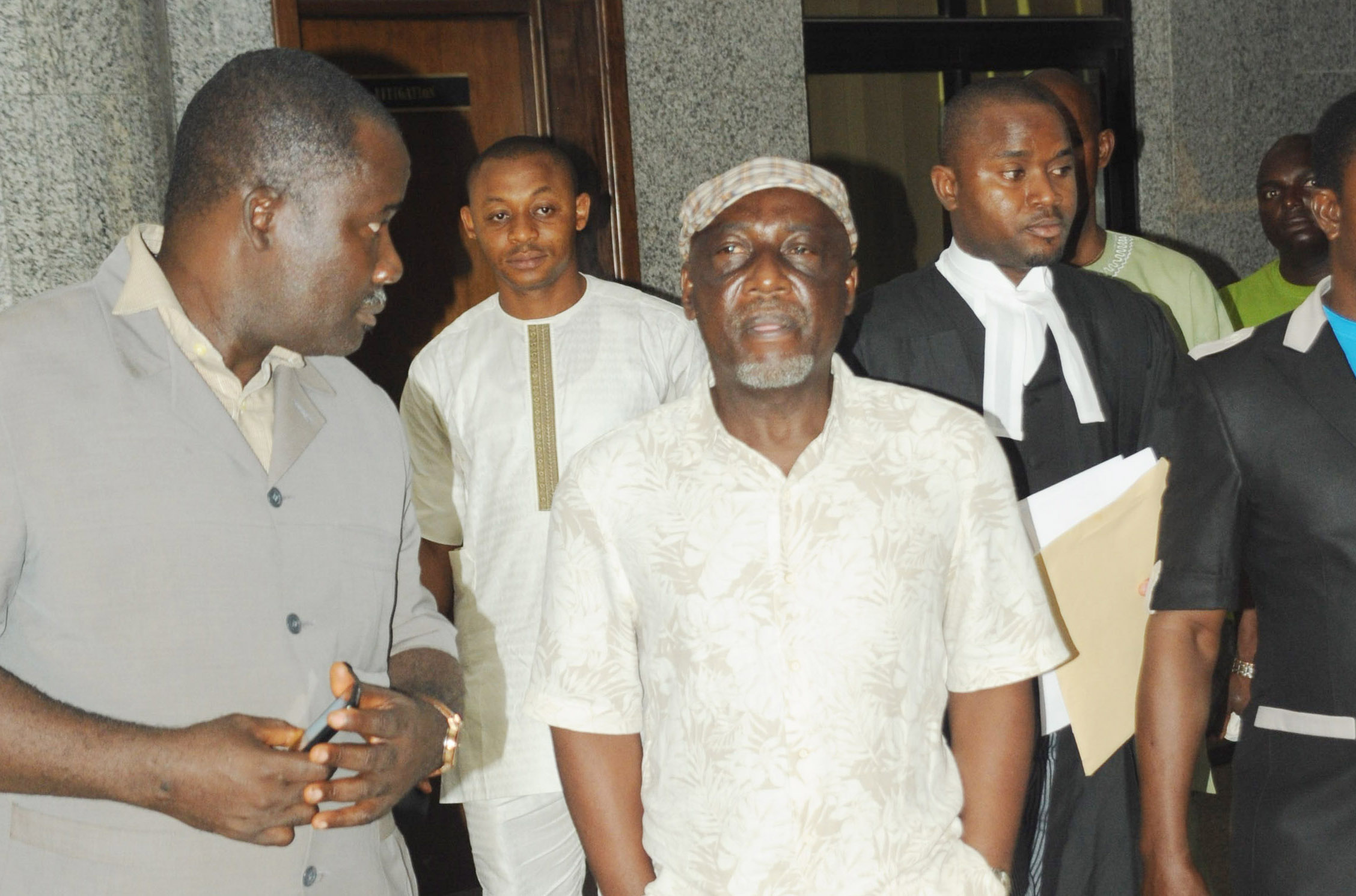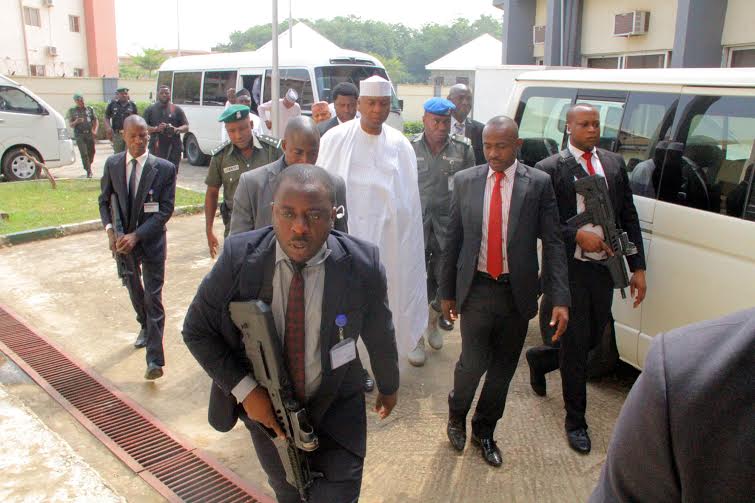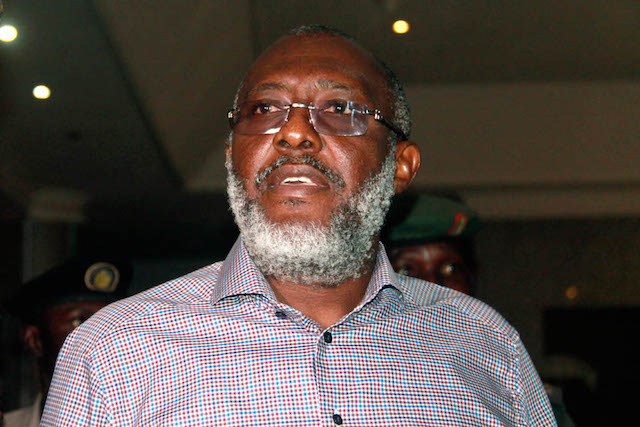The subject of regulating religious preaching in Kaduna State is not about to go away, certainly not with the declaration by the governor, Malam Nasir el-Rufa’i, the other day that he will not back down from it in the face of stiff opposition to it from certain influential quarters.
Besides, there are the shocking revelations of army heavy-handedness in the Army/Shi’ite faceoff last December in Zaria at the ongoing public hearings of the judicial enquiry into the faceoff. Many people have attributed the faceoff itself ultimately to the absence of regulation of preaching in the state.
Last week the issue was the subject of this column. My position was that even though I have reservations about government issuing licenses to preachers, I believed the governor was right to seek to regulate preaching for the simple reason that no freedom anywhere is absolute.
As usual, the article elicited mixed reactions. The most interesting and thought provoking of them came from my good friend, and a Kaduna based senior lawyer, Mr. Bitrus Gwada.
Advertisement
Actually his intervention was not in direct response to my piece. Rather it was to a piece he said he’d received in his email address from an organization calling itself Southern Kaduna in Diaspora (SOKAD), USA & Canada. Gwada then circulated both SOKAD’s piece and his reaction to it among those on his mailing list, myself included. My assumption was that he sent me the two pieces because of my column last week.
The SOKAD piece, singed by Messrs. Aminu Likita as President, Freeman Kamuro as Secretary and Ibrahim A. Maikori as Financial Secretary, was entitled “The need for free exercise of religion in Kaduna State.” It was unequivocally opposed to regulating the preaching of religion in the state. The state’s House of Assembly, it said from the beginning, should “kill the bill if the Executive does not withdraw it.”
In his reaction to the SOKAD piece, Gwada disagreed with its objection to regulating preaching. “The regulation of preaching in Kaduna (State),” he said, “was absolutely desirable.”
Advertisement
Even then, he said, it was unnecessary to enact any new law on the subject. Instead, what was needed, he said, was a political will to enforce the existing 1984 edict as amended, along with relevant sections of the Penal Code applicable in the North since before the First Republic.
He pointed out that, contrary to SOKAD’s position that laws enacted by the military while in power are, by definition, null and void in a democracy, legally they remained “in force until properly repealed”, a position supported by another senior lawyer, Gaius Yaro, whose reaction to my column is published below.
Gwada said the governor’s amendment of the 1984 law was not only gratuitous it was also unconstitutional because it gave recognition to Islam and Christianity and the powers it gave Jama’atu Nasrul Islam (JNI) and Christian Association of Nigeria (CAN) to pick and choose preachers was “not proper.”
The amendment, he also said, was wrong to try offenders in Shari’a or Customary courts. All offenders, he said, should be tried in Magistrate courts.
Advertisement
Clearly while the senior lawyer disagreed with SOKAD on the big picture of regulating preaching in Kaduna State, he agreed with some of its positions on the details of the governor’s amendments.
And in taking this position he drew attention to a 70-man committee, the Kaduna State Peace and Reconciliation Committee (KSPRC), Mr. Patrick Ibrahim Yakowa, the late governor of the state, set up in February 2012 under the joint leadership of Malam Abbas Dabo Sambo and AVM Ishaya Aboi Shekari (rtd), which recommended ways to keep the peace in the state. The key recommendations, Gwada said, were simply the enforcement of existing laws on religious activities and a ban on stereotypes and hate speeches. After all, no one, he pointed out, has ever been prosecuted over any of the violent religious crises the state had suffered.
From all this it seems Gwada and myself agree on at least two points; the need to regulate preaching in the state and to end the widespread impunity by preachers. Beyond these, however, we seem to disagree on how to go about the regulating.
To begin with, I disagree with him that the governor’s amendment is gratuitous, if only because the existing 1984 law, with all its amendments, was enacted by soldiers without public input. Besides, the rise of the Internet alone since the last amendment of the law in 1996 has made some of its sections irrelevant.
Advertisement
Secondly, I disagree with the argument by both himself and SOKAD that singling out Islam and Christianity for mention in the law amounts to their adoption by the state. The mention may amount to recognition but recognition is not the same as adoption.
But even if recognizing the two religions looks like discriminating against the other religions, there is the good reason that only the two claim to be universal and therefore actively seek to propagate themselves across race, ethnicity and nationalism. Therefore even if it looks discriminatory to single out the two religions for mention in the law, the argument, for all practical purposes, is academic. Indeed it can be counter-argued that the discrimination is AGAINST the two religions precisely because they seek for converts across all divides.
Advertisement
Thirdly, on the truly difficult issue of who should chose and pick preachers, the three options seem to be: no one, government and self-regulation. We may add a fourth which is a combination of the second and third but with more of the third.
In expressing his outright rejection of el-Rufa’i’s bill, – as opposed to the more measured opposition from his Chairman, Dr. George Dodo – the Secretary of Kaduna State CAN, Rev. Sunday Ibrahim, quoted the Book of Mark 16:15 as saying, “‘Go into the world and preach to every creature.’ That is a general call on everyone and as such everyone is a preacher.”
Advertisement
Yet, as the reverend himself said in the same breath, those called to be pastors, evangelicals and prophets do “undergo training with a particular denomination while they are licensed by and ordained by those churches.” (Daily Trust, Sunday March 20). This sounds to me like a sensible argument against a free-for-all.
As I said last week, as a journalist whose calling is akin to that of a preacher, I have my reservation against government licensing. This is why journalists have fought against a government dominated Press Council since Independence in 1960. Government licensing is clearly a slippery slope to government censorship.
Advertisement
That leaves us with the third option of self-regulation by the religions themselves. Of course, like other options, it is not without its own problems, as can be seen from at least the last reaction to last week’s piece published below.
Even then I consider it the least bad of the far-from-perfect options we have. To mitigate some of its inherent problems, there may be need to balance the religious composition of the committees to issue preaching licenses with well respected secular community leaders and government officials, but with the last in minority.
Like all other problems, there can be no perfect solution to the issue of religious preaching. But if we constantly talk to ourselves to understand and accept our differences in good faith and, of course, if we also faithfully enforce the laws we enact, the kinds and scale of religious violence we have seen in recent past will be a thing of memory.
RE: Preach and be damned?
I agree with you in the piece with the rhetorical title: Preach and Be Damned? Why? This is because religion has become a leviathan and the state a Lilliputian before it. People can kill and maim in the name of religion. It is a sad, very sad situation. The governor will be the tallest man if he can clip the satanic wings of religion. But religion will not budge if the economy fails to eliminate penury and pain. Rather it will continue to exalt itself.
Amos Ejimonye, Kaduna , +2348039727512.
El-Rufa’i doesn’t have to amend the law. He should implement what is on ground strictly, and get evidence of its deficiencies, which he will cite, in convincing the House of Assembly and clerics that there is need for amendments.
I am with him all along but “gani ya kori ji.” He has three years ahead. Let him test the law as it exists for six months, enough time to get credible and verifiable evidence of shortcomings or success. All the Military Edits have been validated by the 1999 Constitution and deemed to be laws of respective States where they exist.
Governance is not speed; it is service to the good, the bad and the ugly.
Gaius A. Yaro, +2348020505061.
This man el-Rufa’i is an anti-Christ. Use your column to tell him to stop that evil bill from the pit of hell or go to Hell if he does not repent.
David, Lagos, +2348128801999.
I was initially in support of the Religious preaching Regulation Bill after listening to Governor El-Rufa’i’s convincing points. However, after listening to the testimony on oath of Dr. Khaled (Abubakar Aliyu), the Secretary General of Jama’atu Nasrul Islam, at the commission of enquiry on the Army-Shiites clash, that Shiites are not Muslims, I saw the need to further rework the proposed Bill.
With Power of regulation in the hands of predominantly Wahabi-Salafi JNI, financed largely by the government of Saudi Arabia, I don’t see other Muslim groups treated fairly under this bill as currently composed.
JNI will do everything possible to deny the adherents of Tariqa and Shi’ites the right to propagate their doctrine of Islam.
B.B. Dangora, [email protected]
Add a comment
